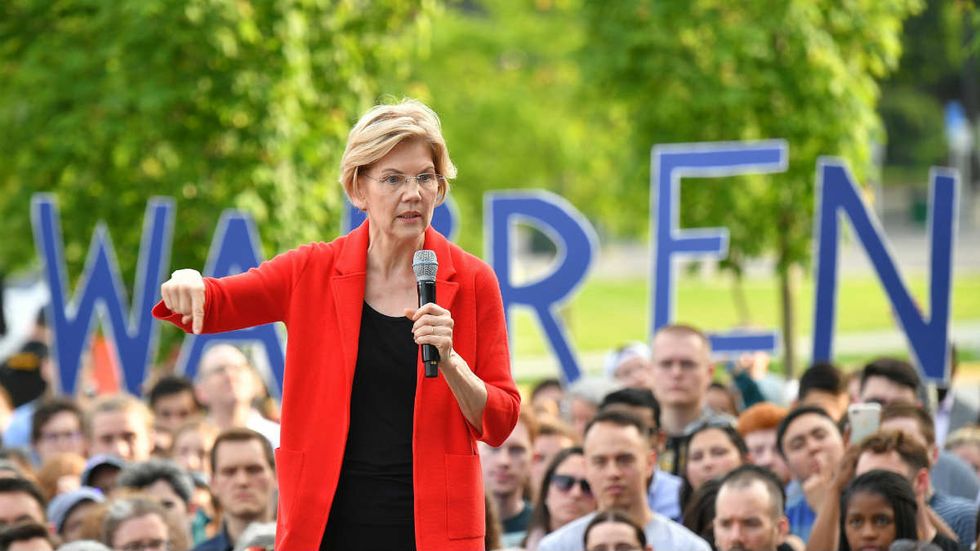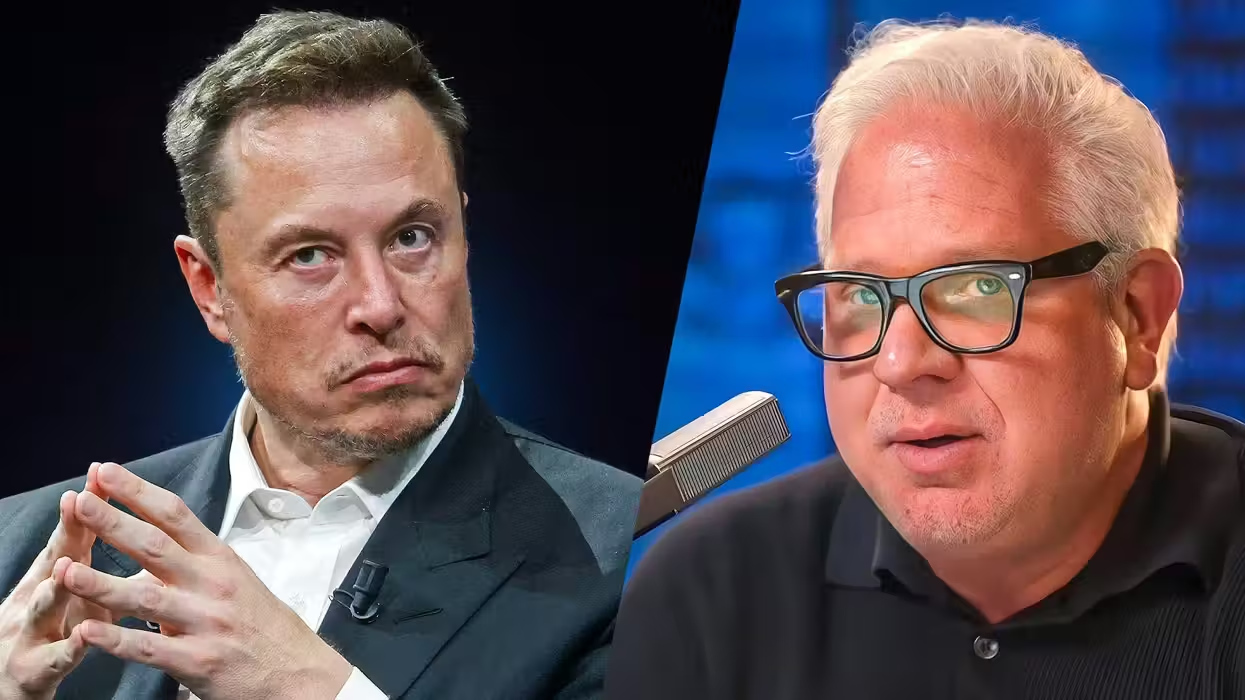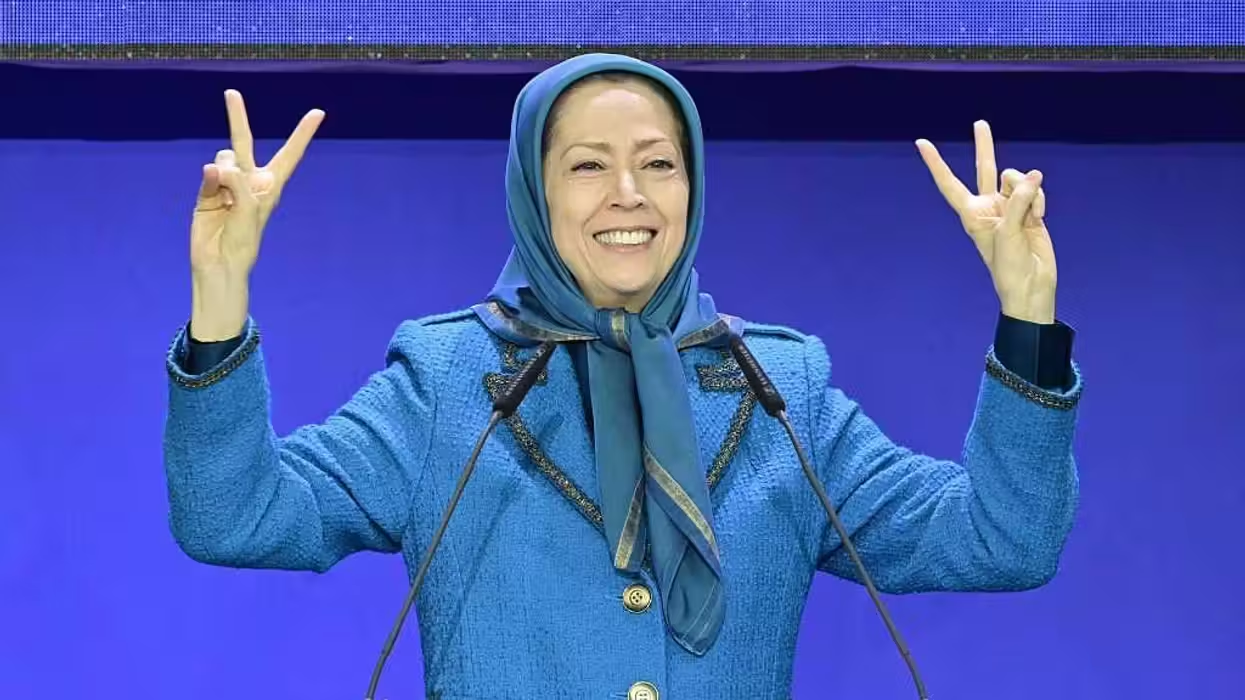
© 2026 Blaze Media LLC. All rights reserved.
Does Elizabeth Warren really think she can get rid of the Electoral College before 2024?
December 02, 2019
The Electoral College has been one of Democrats' favorite punching bags ever since Donald Trump was elected in 2016, and one of his 2020 opponents thinks she can be the last president ever elected by it.
In a social media video posted Sunday night, 2020 Democratic hopeful Sen. Elizabeth Warren, Mass., said that it is her goal to get rid of the Electoral College during her first term in office.
"My goal is to get elected, and then to be the last American president elected by the Electoral College," Warren tells applauding supporters in the video. "I want the second term to be that I got elected by direct vote," she continued before correcting to "popular vote."
"I just think this is how a democracy should work," the candidate explained. "Call me old-fashioned, but I think the person who gets the most votes should win."
The Electoral College system is designed so that the president is chosen by groups of electors from every state. A state’s electoral votes are equal to its number of House members plus its two senators. This is how it balances the concerns of more populous states that get more House members with less populous states whose interests are more strongly represented in the Senate, where representation is fixed. "The Electoral College makes it even harder to win the presidency," Save Our States project director Trent England explained in May. "It requires geographic balance and helps protect Americans who might otherwise have their voices ignored."
This means that a president can win the popular vote without winning enough votes in enough states to get a majority of electors, which is what happened to failed candidate Hillary Clinton in 2016 and is the chief cause of Democrats' current desire to end the institution. Prior to that, Al Gore's 2000 loss to George W. Bush spurred calls to switch to a popular vote system.
Warren is far from unique in her desire to get rid of the Electoral College, but her proposed timeline for doing so is really questionable. Eliminating the practice of using electors to pick the president would require an amendment to the Constitution, and those don't come easily at all.
Perhaps the most obvious hurdle is that the constitutional amendment process — just like the process of electing a president — also has built-in safeguards to ensure that highly populated states can't run roughshod over the other ones. In essence, to even be proposed, an amendment either needs the support of two-thirds of the Senate or two-thirds of state legislatures, and then it needs three-fourths of the state legislatures' approval for ratification, regardless of how it's proposed. This means that, in order to kill the Electoral College via amendment, a sizable number of representatives from states where voters' interests are better protected by the Electoral College than by the popular vote would have to be convinced to vote against those interests.
And that would be incredibly difficult— if even possible — to pull off, whether the deadline is set at four years or 400.
Editor's note: This article has been updated to include the information about the state-by-state movement to assign electoral votes to the winner of the national popular vote and more information about the support for a popular vote system. The article was further updated to indicate that Michael Steele and Saul Anuzis support assigning electors according to the national popular vote, not eliminating the Electoral College. CR regrets the error.
#mc_embed_signup{background:#fff; clear:left; font:14px}
/* Add your own MailChimp form style overrides in your site stylesheet or in this style block.
We recommend moving this block and the preceding CSS link to the HEAD of your HTML file. */
Want to leave a tip?
We answer to you. Help keep our content free of advertisers and big tech censorship by leaving a tip today.
Want to join the conversation?
Already a subscriber?
more stories
Sign up for the Blaze newsletter
By signing up, you agree to our Privacy Policy and Terms of Use, and agree to receive content that may sometimes include advertisements. You may opt out at any time.
Related Content
© 2026 Blaze Media LLC. All rights reserved.
Get the stories that matter most delivered directly to your inbox.
By signing up, you agree to our Privacy Policy and Terms of Use, and agree to receive content that may sometimes include advertisements. You may opt out at any time.






